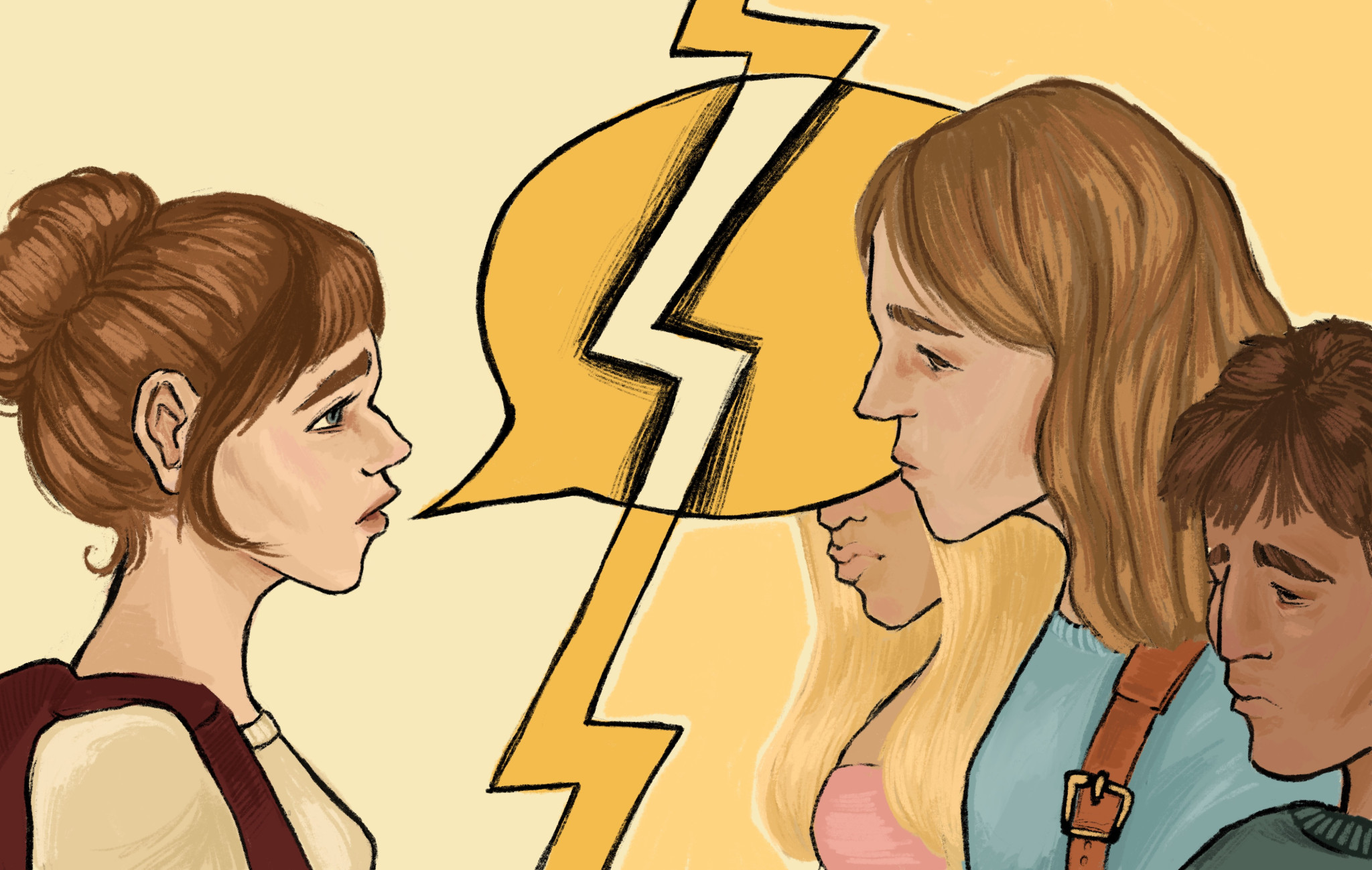Between 2003 and 2022, in-person socializing between teenagers dropped by an astounding 45 percent. In the last few years, teenagers have become more isolated and antisocial than ever before. As a lasting effect of that isolation, teenagers spend increasingly more time on their devices, secluding themselves from others. Today’s youth prefer to make connections through a screen, rather than make friends in person. Unfortunately, this decrease in socialization has lasting effects on students' well-being. Teenagers are in desperate need of more social interactions, face-to-face contact, and less screen time — hopefully allowing for improvements in mental health and happiness.
Despite what younger generations might think, socializing is an essential part of a healthy lifestyle and cannot be replaced by perceived online interaction, as increased seclusion has been directly linked to negative mental health. In polls conducted by the Kaiser Family Foundation in 2021, 42 percent of youth said that they had regular feelings of sorrow and discouragement, a significant 14 percent increase from 2011. Social interaction fosters a sense of belonging and meaning within teenagers and is needed to maintain a good mental state.
Just like eating, exercising, and listening to music, having positive social interactions releases endorphins in the brain in the form of dopamine, which is often referred to as a “natural painkiller.” Endorphins help block pain receptors and allow for a greater sense of physical and mental happiness. Endorphins also lower stress, and help minimize any negative thoughts and moods. Social interaction is so important that it changes the way your brain works.
The importance of a good social life is also relevant educationally. While it may sound counterintuitive, having more meaningful friendships is linked to academic success. Students with no friends “receive lower grades and are less academically engaged compared to those with even just one friend,” reported Jaana Juvonen, a psychology professor at the University of California, Los Angeles, in a 2019 issue of the Educational Psychologist. Friendships and socialization increase engagement in class and promote healthy behaviors and interactions, resulting in better grades and higher levels of success. Research has shown that those who have fewer friends or struggle to be sociable tend to be less successful academically. They might feel more isolated and alone — resulting in decreased motivation.
Now more than ever, teenagers need to make lifestyle changes to extricate themselves from the vicious cycle of technology addiction, declining social skills, and the negative mental health ramifications that come with it. From making eye contact with somebody across the classroom to saying yes to social invitations, or joining new activities and clubs. Who knows who might be there — maybe even somebody in a similar situation. In the end, they don’t need to throw elaborate parties or be social butterflies, but they must make connections with others; their well-being may depend on it.





